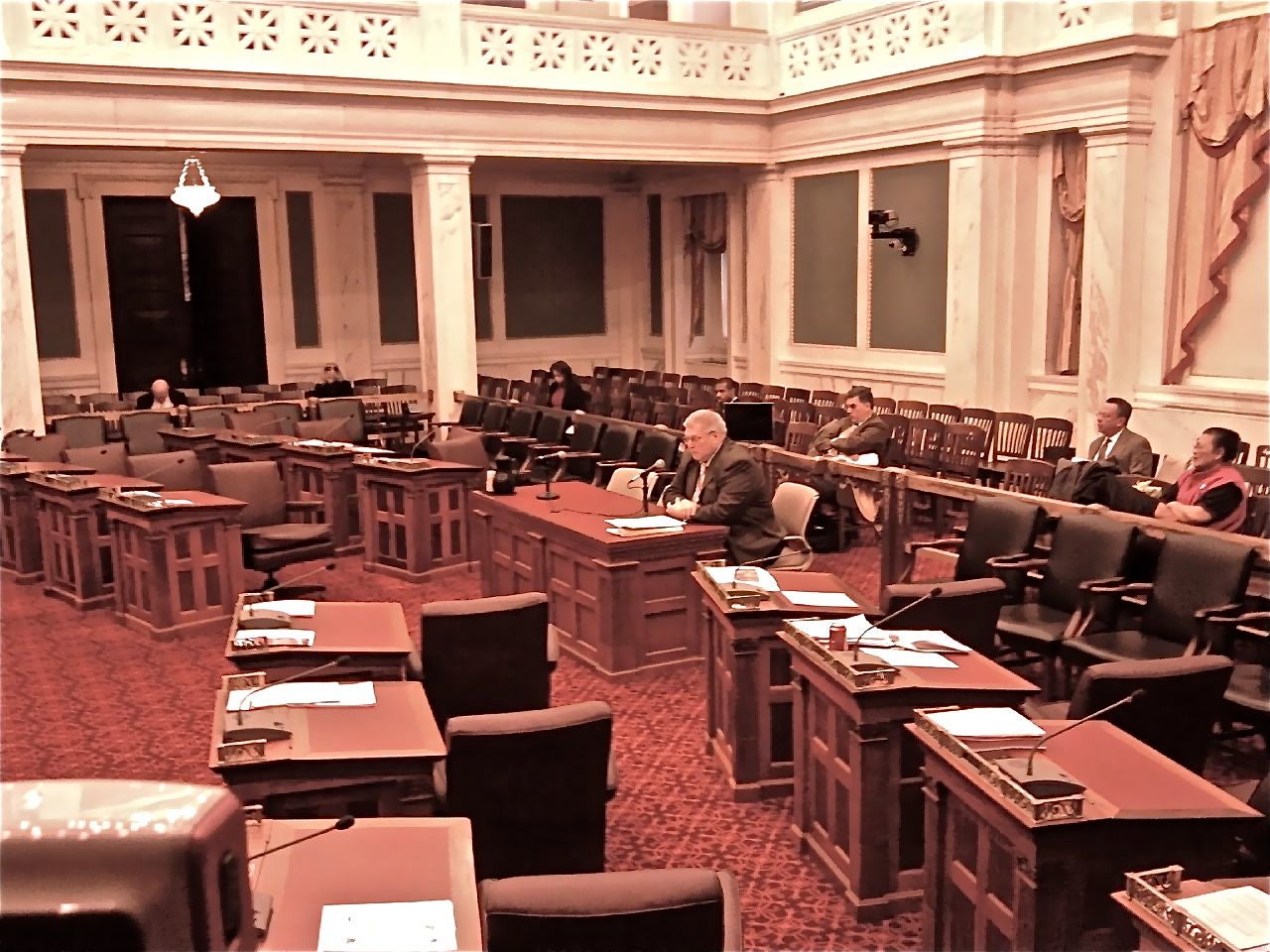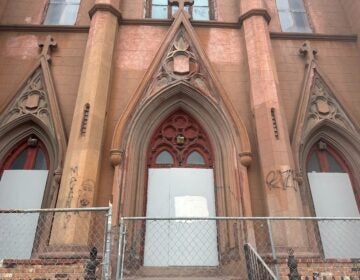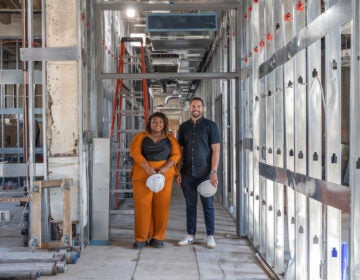PCPC waterfront zoning proposal on its way through council

February 23, 2010
By Kellie Patrick Gates
For PlanPhilly
A zoning proposal that would eliminate height restrictions on seven blocks of the Central Delaware is on its way to city council.
The legislation, introduced by First District Councilman Frank DiCicco, amends the Central Delaware Overlay, a temporary zoning measure designed to protect the waterfront from development that goes counter to the city’s long-range goals until a master plan and associated zoning are in place. The amendment also gives the city planning commission an extra two months to develop the guidelines that will govern the implementation of the overlay.
On Tuesday, city council’s rules committee voted unanimously to send the bill on to full council, as the planning commission recommended last week. (http://planphilly.com/pcpc-oks-overlay-height-controls)
This step was taken despite objections raised by the Central Delaware Advocacy Group, whose mission it is to lobby city government to stick close to the tenets of the Vision for the Central Delaware, a document that lays out the hopes of city residents for the waterfront, based on more than a year of public input. The city has told the consultants working on the master plan to use the vision as a guide.
https://www.youtube.com/watch?v=mztwtks9AtE
However, CDAG’s concern about the portion of the bill that eliminates height restrictions may still be addressed. The bill eliminates height restrictions between Allegheny and Oregon avenues except for those in light commercial and residential zones, which have height restrictions written into their underlying zoning. The vast preponderance of other parcels along the stretch already have no height restrictions per se, because they have either more dense commercial zoning or industrial zoning. These classifications do not limit height, but they do have regulations that say the taller a building is, the narrower it must be, and those rules would not be altered.
The exceptions: A seven-block swath in Old City, where the Central Delaware Overlay and the Old City Residential Special District overlap, and the two areas in South Philadelphia and Fishtown zoned Commercial Entertainment District, the zoning class that allows for casinos.
The Old City District has a 65-foot height limit. DiCicco’s legislation would eliminate it within the Central Delaware Overlay’s footprint. Old City Civic has no problem with this, and neither does CDAG.
But CDAG is concerned that the proposed amendment might call into question the 300-foot height limit placed on casinos through the CED classification. Since the amendment specifically exempts the other underlying zoning classifications with height restrictions, CDAG thinks a CED exemption should be included in the bill language as well.
“We are confident that any argument for ambiguity in conflicting provisions of any of the included zoning classes could be averted with this change,” said CDAG Chairman Steve Weixler.
https://www.youtube.com/watch?v=5n2VNi86EmE
DiCicco said he was not certain adding the language would change anything, because the law that created the CED specifically states that any conflicting legislation is trumped by the CED.
Bill Kramer, the planning commission’s director of development, told DiCicco during the meeting that he did not know, off the top of his head, exactly what impact adding the language would have. After the meeting, he said adding the language to exempt the CED specifically did not seem like a bad thing. He said he would consult the city law department to find out “is there enough benefit to warrant this type of amendment.”
The law department will then pass its analysis on to DiCicco, who, depending on the results, could amend the amendment or propose a different bill to address the situation, Kramer said.
As of now, the bill is set to be read by council at its next meeting, and could pass at the following meeting.
https://www.youtube.com/watch?v=TBJoJGrebv0
CDAG members discussed the proposal at their meeting last month. (http://planphilly.com/amendment-height-would-benefit-wtc) Society Hill resident Paul Boni, who is also the attorney for Casino-Free Philadelphia, was at the meeting to discuss the guidelines for the implementation of the overlay. But he also said he was concerned about how the height restriction changes in the amendment might impact the CED classification, if CED were not specifically exempted from the change.
He has since prepared an analysis.
In his testimony during the meeting, Kramer said the purpose of removing the height restriction where the Old City special district overlaps the Central Delaware Overlay – the area between Wood Street, Spring Garden Street, Christopher Columbus Boulevard and Interstate 95 – “serves to provide consistency throughout the Central Delaware Riverfront Overlay area.”
https://www.youtube.com/watch?v=L51V-MyM0zM
DiCicco has previously said that the intent has always been to encourage dense development in some portions of the Central Delaware, and this backs that up.
The bill would also potentially benefit those who want to develop the Philadelphia World Trade Center. Those parties have said in the past they were stymied by the height restriction. DiCicco, Mayor Michael Nutter and other city officials, along with some waterfront neighborhood associations, were named in a 2007 lawsuit filed by Waterfront Renaissance Associates, the partnership that wants to build the World Trade Center. In October of 2009, The Philadelphia Inquirer reported that the city and the developer were in settlement negotiations, the crux of which were that the World Trade Center would be exempt from the 65-foot height restriction.
Craig Schelter spoke at Tuesday’s hearing on behalf of the Development Workshop Inc., a non-profit he co-founded to promote development-friendly policies in Philadelphia. He asked the committee to pass the proposal.
Schelter said the height controls appropriate for most of the Old City special district are not appropriate for the waterfront. Schelter, CDAG, Boni and others pushed the planning commission to request a two-month extension before adopting guidelines for the implementation of the overlay. The commission was set to adopt guidelines at an earlier meeting, but critics did not think those guidelines were detailed enough. The commission has since been seeking input from those critics about what should be included.
https://www.youtube.com/watch?v=MMxV_wzaEyk
Contact the reporter at kelliespatrick@gmail.com
WHYY is your source for fact-based, in-depth journalism and information. As a nonprofit organization, we rely on financial support from readers like you. Please give today.






